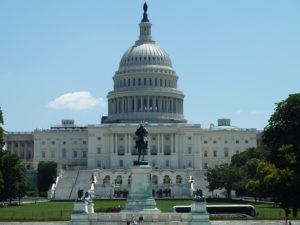 Mark Zuckerberg’s appearance before Congress this week produced an amazing level of media hand wringing together with an incredible display of lawmaker naivete about contemporary digital businesses. Two example articles are from CNN and Slate.com, but there are many more.
Mark Zuckerberg’s appearance before Congress this week produced an amazing level of media hand wringing together with an incredible display of lawmaker naivete about contemporary digital businesses. Two example articles are from CNN and Slate.com, but there are many more.
Slate.com gave this example:
“… many lawmakers clearly lacked a firm grasp of how Facebook works. “So, how do you sustain a business model in which users don’t pay for your service?” asked Sen. Orrin Hatch, the Utah Republican. Zuckerberg could hardly contain a smirk as he replied: “Senator, we run ads.””
In public discourse, this will become a “Zuckerberg is evil, Congress is incapable” kind of narrative, but as it goes that way, a bigger and much more important picture is being lost. What the hearing actually put on display is the clash between the digital future, as represented by Facebook and Zuckerberg, and the capitalist past, as represented by its governing elites in Congress.
Our democracy was created 240 years ago to serve and facilitate capitalism. It’s sine qua non is to enable the masses to regulate private activity in the public interest, while allowing enterprise to continue to serve the public interest by providing a vibrant economy. The ebb and flow of the political pendulum depends on what the public perceives is needed at a given time to accomplish both ends.
This nexus between democracy and capitalism, however, is being disrupted. Just as digitalization disrupts markets, it requires a different understanding of the public interest and how to manage to it. Democracy cannot effectively regulate digital enterprise, and the realization of that is the first step to finding a new governing mechanism.
The problem is that as the economy digitalizes, the “masses” are fragmenting. Mass markets are becoming niche markets. Three TV stations has become thousands of TV channels. There are millions of websites catering to their own specific audiences. As people move more deeply into their communities of interest, which require digital networks tying them together, there is a decreasing ability to perceive a shared public interest. Democracy, which is set up to manage that interest through representation and popular vote, can no longer function effectively.
Hence, beyond the technical naivete of Congress, these hearings provided the first view of the inability of the institution to handle the problems of the future digital society. It displayed a confrontation between the elites of the capitalist world who sit in Congress, and the elites of the new digital world who own and run the networks. Comprehensive cultural change doesn’t usually occur from the margins, nor through protest action; it happens at the center when elites of different types and worldviews conflict. That, in my estimation, is exactly what we are seeing in Congress this week.
As another example of the same conflict of elites, we have the old industrial capitalist mind of Donald Trump pitted against the new world mind of Jeff Bezos as well. Trump, who is presumably unhappy with the Washington Post and therefore taking out his ire on Bezos’ Amazon through different tax collection requirements, is similarly naïve about what he is doing. A state-by-state Internet tax is exceedingly difficult to administer, and if the government were to impose an Internet tax, it would have to apply to all online retailers. Amazon would have an easy time handling it, but everyone else who wants to do business outside of Amazon would have to comply and would not have the technical ability to do so. The cost would be prohibitive. For small retailers, many of whom depend on Internet sales today, selling on the Internet would be far easier by selling through Amazon than by selling independently. Even if Trump actually wanted to help small retailers, the effect would be the dead opposite.
In the past, there have been conflicts between business and government, to be sure. Business is innovative and forward-looking, whereas government is often protective. Yet the leading elites in both groups were working from a single, capitalist-democratic worldview. They could understand each other because they all understood capital, its conflict with mass society, and the problem they were all trying to manage.
This week’s interchanges demonstrated that these two groups of elites share no such common understanding. Senators and Congress asked questions from the standpoint of capitalism, which they understand, and Zuckerberg answered from the standpoint of digital business, which he understands. In the spectacle of their conversation, we can see the seeds of the change coming. Democracy proved itself to be incapable of managing the digital economy to come. Indeed, it can’t really even understand it.